Dear Restorative Community Network members,
Please join RJ champions John Braithwaite, Jon Stanhope, Tony Foley (Chair Law Reform Advisory Committee), Cheryl Condon, Kate Milner, Dymphna Lowry (Cth Ombudsman), Shawn van der Linden (CEO, Conflict Resolution Service), Dennis McDermott, Amanda Lutz (manager, RJU) and others at the:
‘Restorative Community Network Gathering’
Wed 28th June 2017, 12.15-1.45 pm,
Venue: Riley Hall, Pilgrim House
69 Northbourne Ave
Topic: “Where to from here: Next Steps for our Restorative Community”
Since July 2015, we’ve held a series of workshops across issues such as education, disability, health, crime and justice, ageing and sexual offending.
These workshops have inspired innovative and exciting developments such as ‘Restorative ANU’, a collective aimed at improving responses for victims of sexual assault on campus, the Canberra restorative hospital, and the introduction of the ‘Peace Education Program’ at the Alexander Maconochie Centre.
This meeting will focus us on discussing the benefits of the RCN work and vital questions for the future of this grass roots movement, such as ‘What do we need for the network to continue?’ and ‘How would we like to work into the future?’ Here’s your chance to be involved!
The agenda attached outlines some discussion points for the continuation of the network. Please have a look and bring your ideas and energy on the day or, if you can’t make it, feel free to email us your suggestions to share.
Please email mary.ivec@anu.edu.au by 22 June 2017. Light refreshments will be provided.
AGENDA
Background:
• The RCN has operated under the auspices of the ACT Government and the ANU RJ Centre, with strong support from the ACT Restorative Justice Unit.
• The ANU RJ Centre provided start-up funds for a website and annual payment of webhosting.
• Resources are now stretched and we need to pitch together to consider ways forward.
Agenda/Discussion items:
1. How has RCN been impacting so far? (20 mins of feedback/good news stories)
2. Is there a need for a collective representative body to maintain oversight and momentum of the RCN, and if so what structure would be best.
3. Is there a need for a government funded position (such as Restorative Engagement Officer) to support the RCN and if so where would this person would best be located. Identify the roles for this officer, including:
- Consult and plan and coordinate workshops/events
- Provide secretariat support
- Liaise with rotating host agencies
- Report on activities and outcomes of RCN
4. Identify potential funding sources
5. How to share the organizing of workshops/ events until funding sourced
6. Café catch-ups for informal restorative conversation opportunities
7. Close
Download the pdf of the above invitation to print or share [470 KB].

